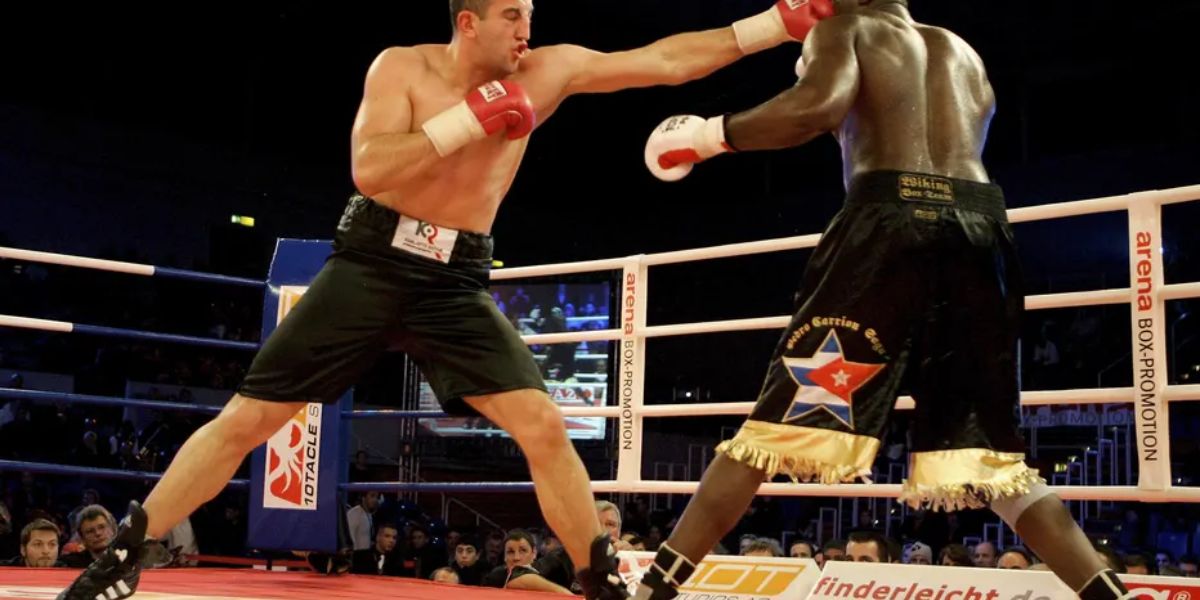New York, NY – A major federal drug-trafficking trial in Brooklyn was abruptly stopped this week after officials revealed that three men allegedly attempted to bribe a juror with $100,000 in cash, prompting immediate dismissal of the entire panel and a month-long delay in proceedings.
The trial involves former heavyweight boxer Goran Gogic, who is accused of helping smuggle 20 tons of cocaine from Colombia to Europe through U.S. ports. Prosecutors say the bribery attempt represents a serious threat to the integrity of the judicial process.
Attempt to Bribe Juror Prompts Emergency Action
According to details shared in open court, a juror notified authorities after being approached by Mustafa Fteja, who allegedly offered the six-figure payment in exchange for a not guilty vote. Federal prosecutors said Fteja was working alongside Valmir Krasniqi and Afrim Kupa, who are also accused of coordinating the plot.
Assistant U.S. Attorney Francisco Navarro told the court that the men may have gained access to confidential juror information through individuals familiar with the case, an issue now under investigation.
Timeline of Bribery Scheme
Court documents outline a four-day timeline of the alleged corruption attempt:
- Thursday: Fteja contacted and met with the juror on Staten Island.
- Saturday: A second meeting took place, during which Fteja allegedly increased the offer to $50,000–$100,000 to influence the verdict.
- Sunday: Investigators secured recorded conversations in both English and Albanian in which the defendants discussed their plan.
Prosecutors quickly notified U.S. District Judge Joan Azrack, who dismissed the jury just minutes before opening statements were set to begin. A new anonymous jury will be selected when the trial resumes after a 30-day break, with the next scheduled conference set for December 17.
Status of the Defendants Accused in the Bribery Plot
Following their arrests:
- Mustafa Fteja was released on a $150,000 bond.
- Valmir Krasniqi and Afrim Kupa remain jailed pending future hearings.
None of the three were required to enter pleas at their initial court appearances.
Background on Gogic and the Drug-Trafficking Case
Gogic, a former professional boxer from Montenegro, fought in Germany between 2001 and 2012, accumulating a 21-4-2 career record. Prosecutors describe him as a major international trafficker who operated on a massive scale using commercial cargo ships to move cocaine across global ports.
The indictment alleges that Gogic and his co-conspirators collaborated with cargo-ship crew members to move cocaine from speedboats into shipping containers near ports in Colombia, Ecuador, and Peru.
Authorities intercepted three major shipments tied to the operation, including:
- 1,437 kilograms of cocaine on the MSC Carlotta in New York/New Jersey in February 2019
- 17,956 kilograms of cocaine on the MSC Gayane in Philadelphia in June 2019, worth over $1 billion, one of the largest cocaine seizures in U.S. history
Gogic has pleaded not guilty, and his attorney has not commented publicly on the bribery allegations.
Why Jury Tampering Is a Serious Federal Crime
Tampering with a jury threatens the foundation of the justice system. Federal law treats bribery, intimidation, or any attempt to influence juror decisions as a severe offense. Such interference often leads to mistrials, new jury selections, and additional criminal charges for those involved.
How Authorities Detect and Prevent Jury Tampering
Law enforcement agencies use surveillance, anonymous juries, secure juror information systems, and rapid reporting processes to respond to potential tampering. When a threat is identified, as demonstrated in this case, courts move quickly to protect the trial’s integrity—even if it causes significant delays.
Public Concerns and Courtroom Security Measures
High-profile international drug-trafficking cases often come with elevated security risks. The attempted bribery in this trial underscores the importance of:
- Secure juror identification procedures
- Monitoring of external contacts
- Coordination between federal marshals, FBI agents, and court officials
Charges and Potential Penalties
Gogic faces charges under the Maritime Drug Law Enforcement Act, which can carry a sentence of 10 years to life in prison if he is convicted. The individuals accused of offering the bribe may face additional federal charges related to jury tampering and corruption.
Conclusion
The alleged bribery attempt has dramatically altered the trajectory of Goran Gogic’s trial, raising serious questions about outside influence and the lengths individuals may go to disrupt federal prosecutions. As the case resumes next month with an anonymous jury, federal authorities will continue scrutinizing how the defendants gained access to confidential juror information.
Share your experiences in the comments below.






